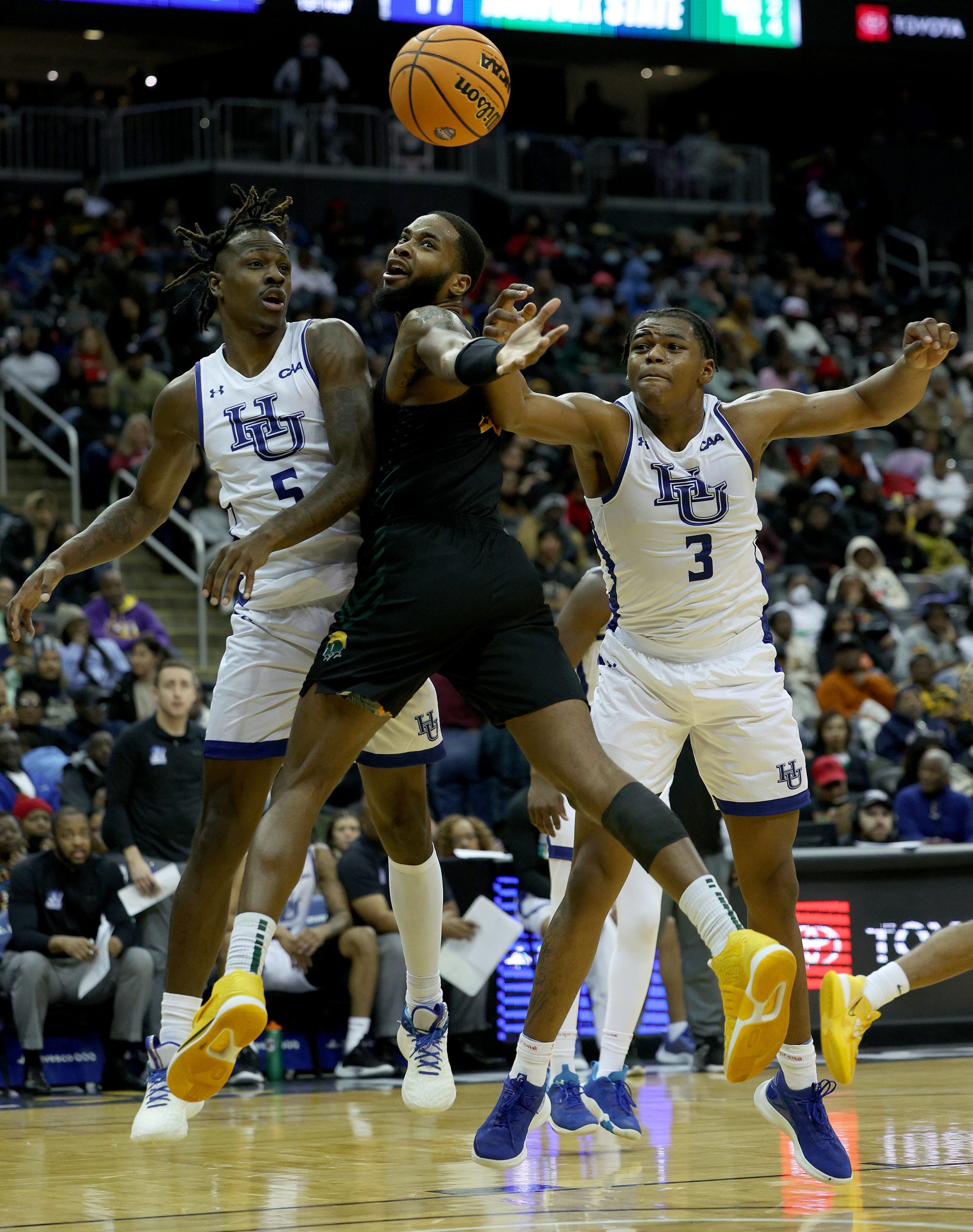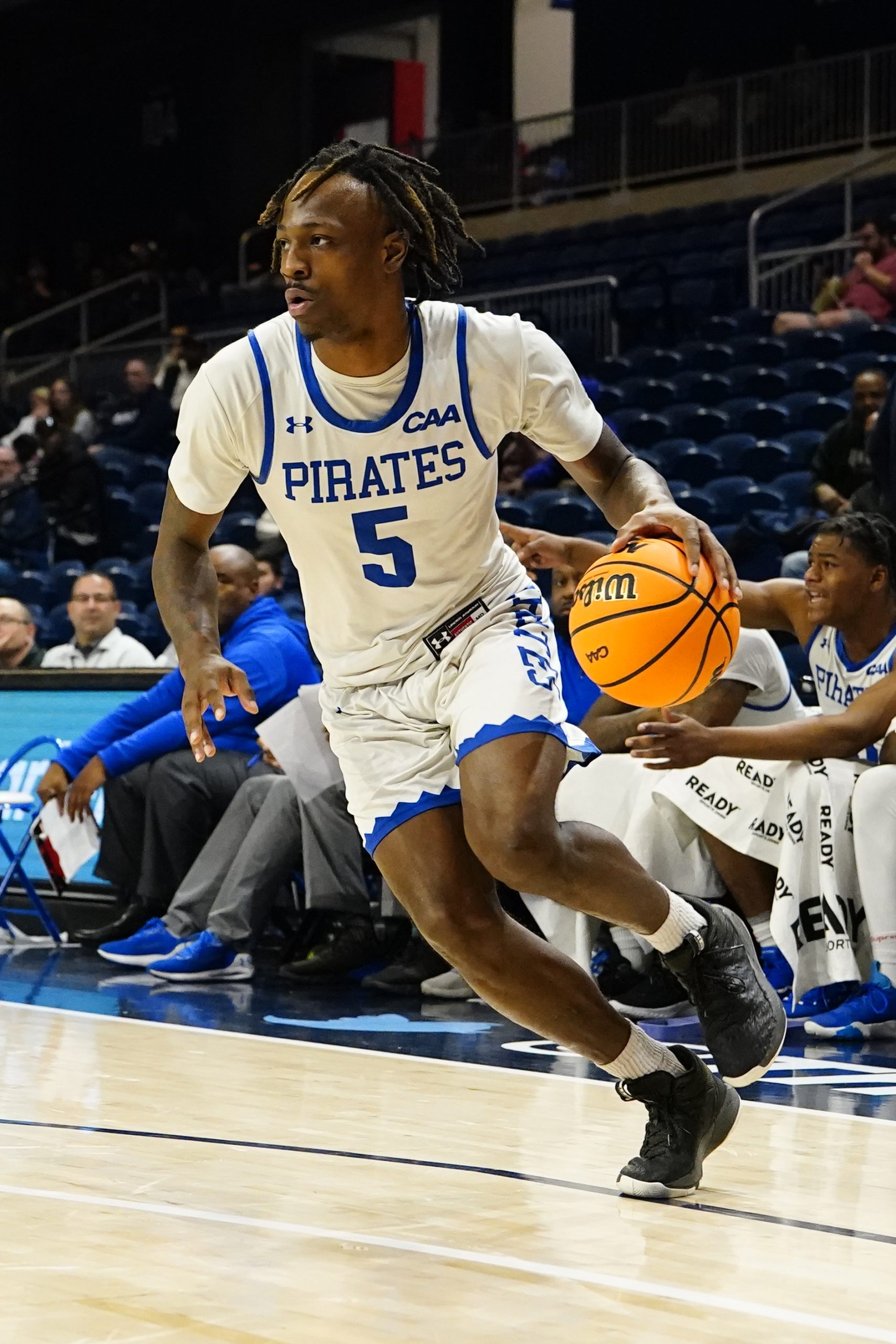After Moving Conferences Twice, Hampton University is Looking to Make Some Noise in the CAA
It’s been nine years, and there’s still something that doesn’t sit right with Maryland traveling to Iowa on a Wednesday night for a Big Ten matchup, bypassing longtime ACC rivals like Duke, North Carolina and Virginia. But conference realignment hasn’t only impacted the high majors; it’s had a ripple effect on some of the most historic HBCU conferences and the respective programs that make up these conferences. Case and point: Hampton University.
After 22 years, Hampton announced it was leaving the MEAC in 2017. In the six years since, Hampton has moved conferences twice, first to the Big South and then to the Colonial Athletic Association (CAA) last year-each move marking a significant uptick in competition.

“I hate to say it, but the first year [in the CAA] was a rude awakening,” says Hampton head coach Edward Joyner Jr., who’s been with the program since 2006. “But it was also an exciting new endeavor that we were willing and ready to jump into. Going into our second year, we’re raising the bar for ourselves with what we’re recruiting and what we’re trying to do to put ourselves in position. We’re capable of winning some ball games and trying to play with the elite in the conference.”
Despite no longer being in the MEAC, Coach Joyner has made it a point for his program not to forget the HBCU community it’s a part of. He intends to sustain the rivalries deeply rooted in the fabric of Hampton basketball, like those with Howard and crosstown rivals Norfolk State. “We’ve tried to keep our traditional rivals,” Joyner says, “so we don’t lose the uniqueness of being an HBCU even though we left the conference.”

For the 2023-24 campaign, Hampton was voted to finish 13th out of 14 in the CAA preseason rankings. But Coach Joyner says he relishes being overlooked and proving naysayers wrong. “When you say chip on your shoulder-that shit ain’t no chip, it’s a boulder,” he says emphatically. “Right now, we’re playing for something bigger than us. We’re in a moment where [HBCUs] are being looked at through us. That’s what we preach every day. Our pressure is a different pressure, but if you don’t want that pressure, don’t come. Why not try to become the standard?”
Photos via Getty Images.